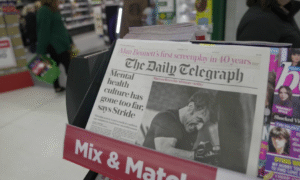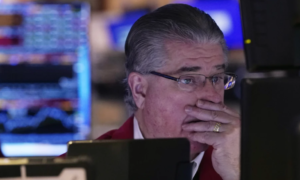Americans’ confidence in the U.S. economy declined significantly in June, reversing a brief improvement and returning to levels not seen since the early months of the COVID-19 pandemic.
According to the Conference Board, its consumer confidence index fell to 93 in June, dropping 5.4 points from May’s 98.4. This decline came as a surprise to economists, many of whom had predicted a modest increase in confidence this month.
The downturn follows April’s particularly low reading, which had already marked the weakest consumer sentiment since May 2020. Much of the anxiety is linked to President Donald Trump’s continued use of tariffs, which have created uncertainty around household finances and the broader economy.
The report noted that Americans’ short-term outlook regarding income, job prospects, and business conditions also took a hit. The Expectations Index dropped 4.6 points to 69 — far below the threshold of 80, which is often seen as a warning sign of an approaching recession.
Consumers’ current views of the economy also soured, with the Present Situation Index falling by 6.4 points to 129.1.
Top concerns for survey respondents included the personal financial impact of Trump’s tariff policies. His unpredictable economic strategies — particularly high import taxes — have made it harder for households to feel secure about their financial future, raising recession fears.
Worries about a possible recession over the next year edged up slightly in June, remaining at relatively high levels. All three parts of the Expectations Index — covering future business conditions, income expectations, and job market prospects — showed declines.
Notably, June marked the sixth month in a row where sentiment about the labor market weakened. Despite that, the job outlook still remains in positive territory thanks to continued hiring. Earlier this month, the Labor Department reported that 139,000 jobs were added in May, a solid figure given the ongoing tariff-related uncertainty. Unemployment is still historically low at 4.2%.
While concern about inflation dipped slightly in June, it remains a major issue for many Americans. Respondents often cited rising prices alongside the financial effects of tariffs.
Recent government data showed that consumer prices rose 2.4% year-over-year in May, up from 2.3% in April. Core inflation — which excludes food and energy — remained steady at 2.8% for the third consecutive month, a key figure watched by economists for inflation trends.
Mentions of geopolitical tension and civil unrest increased slightly among survey participants but remain relatively low on the list of top concerns. The data was collected before the U.S. carried out strikes on Iranian nuclear facilities, but after Israel’s bombing of Tehran.
Also Read:
US stocks sink after a weak report on the economy but then halve their losses after inflation update














